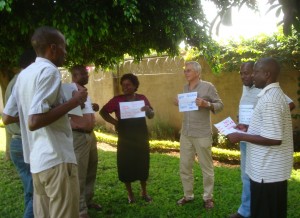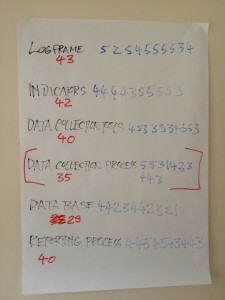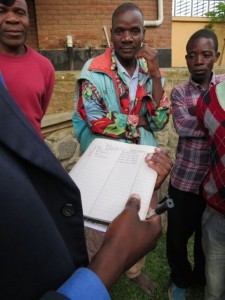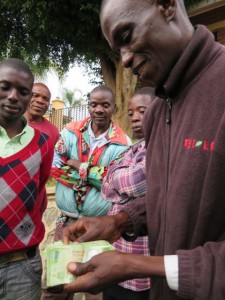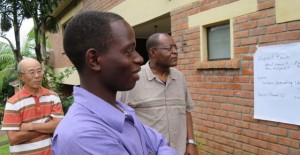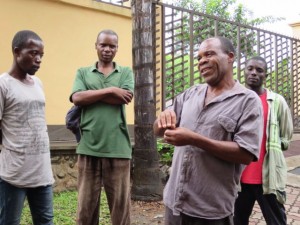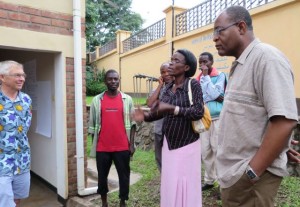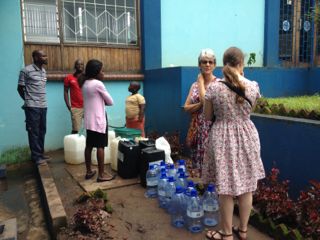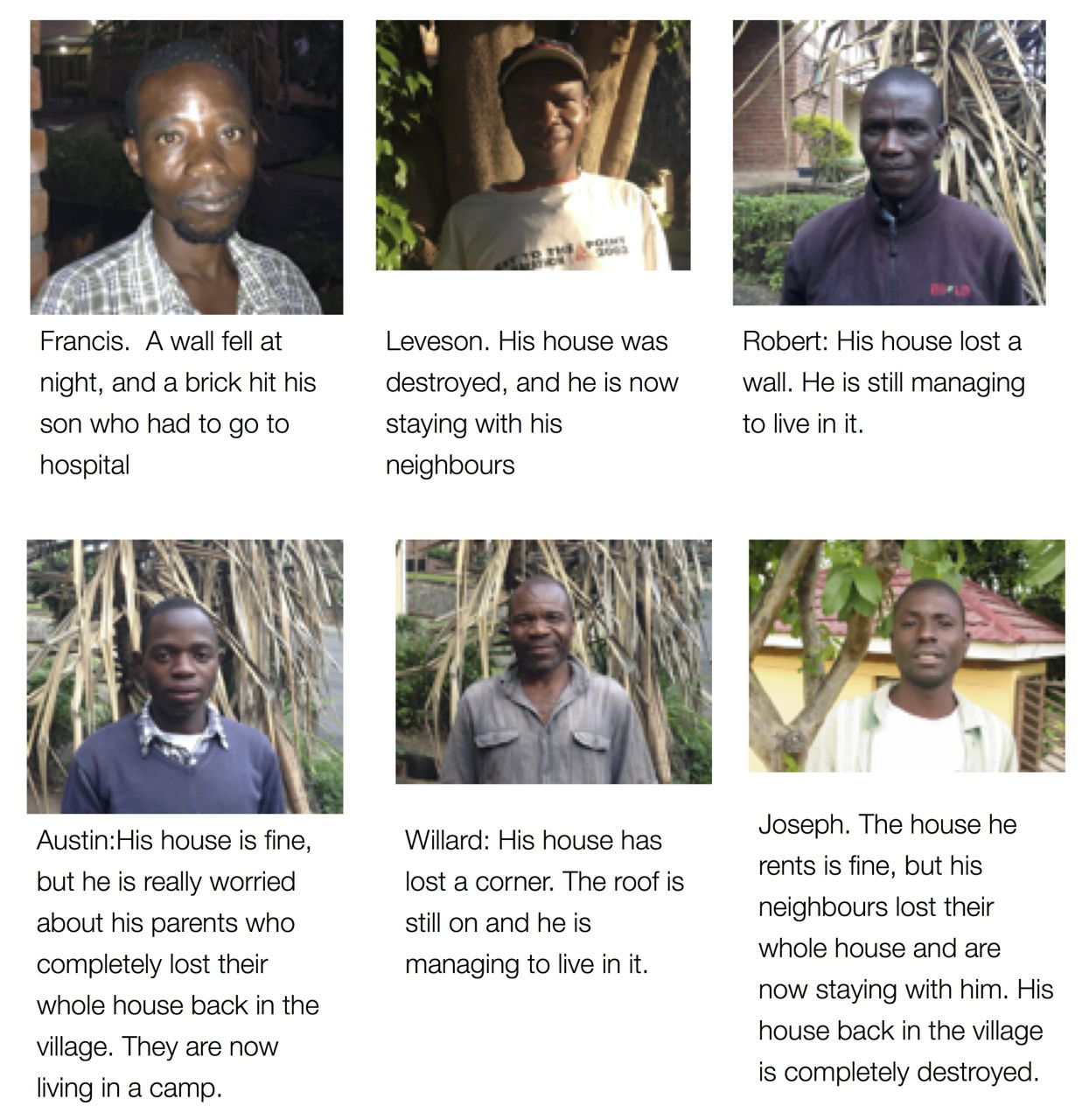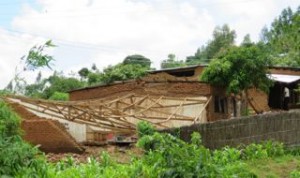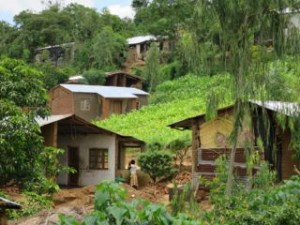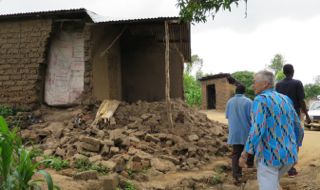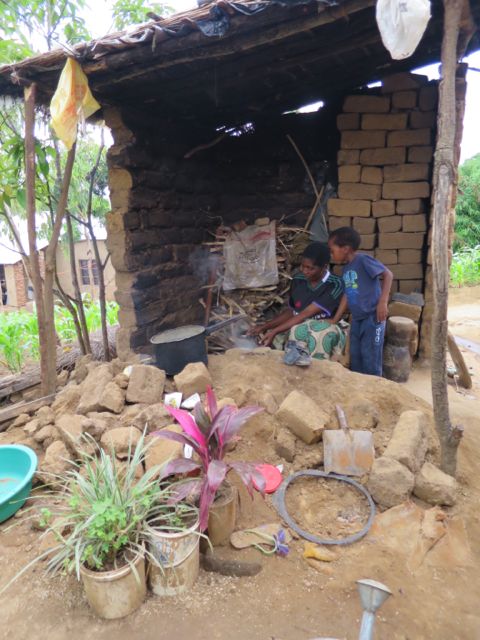A great joy of the year has been to facilitate the Monitoring and Evaluation Technical Working Group (M&E TWG). The organisation implements approximately 17 projects, often with multiple donors and always with a variety of reporting requirements. Thus there are currently 14 staff members who are responsible to a greater or lesser degree for the Monitoring and Evaluation of these projects. Physically they are spread out across eight districts with a 6hr drive between the extremes. The rationale for the TWG is to develop a peer learning culture to improve the quality of M&E across the organisation. To allow for travel, these six weekly one day workshops start at lunch time on a Thursday and finish lunch time the next day. We have now held three since Christmas last year, with two more before we leave Malawi.
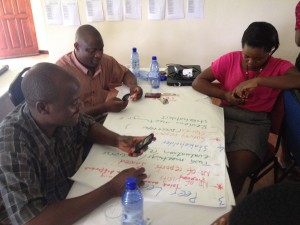
Is this a first? Workshop participants using their mobiles as a workshop exercise.
In the first workshop I took the opportunity to pick everyones brains about how to collect some data that the UK office wanted. A participant suggested that I could get it by looking at the various surveys carried out within the projects, a problem being that there is no central record of what surveys are carried out. At this point I took great delight in being able to break all the usual rules about mobile phones in a workshop. I handed out phone credit tokens to them all and offered a prize to the one who after phoning their friends could provide a list with the most number of surveys conducted during the previous financial year.
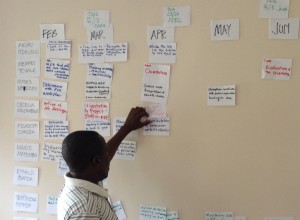
Each participants plan to improve data collection processes in their project
In the second workshop I ran a self assessment process around the quality of each of the M&E elements in their projects. Everyone then developed a small mini project that would improve the data collection process in their project. A fascinating insight came when I asked each to describe their project, outlining the steps and how they were going to monitor progress. At this point I was asked what I meant by monitoring progress, did I mean indicators or something? That making some notes in a diary was ‘monitoring’ seemed to come as quite a surprise to them.
The following session they all gave a report back – learning set style – no suggestions, only questions. Next session I’ll ask for some evaluation.

